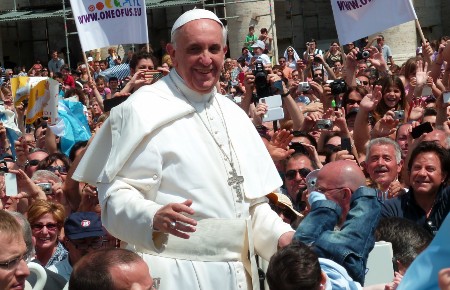Jacob Balde
FREE Catholic Classes
A German poet, b. 4 January, 1604, in the Imperial free town of Ensisheim in Upper Alsace; d. at Neuburg, 9 August, 1668. He studies the classics and rhetoric in the Jesuit college of his native town, philosophy and law at the University Ingolstadt, where on 1 July, 1624, he was admitted into the Society of Jesus. Having undergone the usual ascetical and literary training he taught classics and rhetoric in the colleges of Munich and Innsbruck, and in his leisure hours composed the Latin mock-heroic poem "Batrachomyomachia" (The Battle of the Frogs and the Mice). After completing his theological studies at Ingolstadt, where he was ordained priest in 1633, he was appointed professor of eloquence in the university. Called to Munich a few years later to educate the sons of Duke Albert, he soon after received the office of court preacher to the elector Maximilian. Owing to failing health he was, in 1654, sent to Neuburg on the Danube, where he became the intimate friend and adviser of the Count Palatine Philipp Wilhelm. Here he died. The poetical works of Balde are marked by a brilliant imagination, noble thoughts, wit and humour, strength and tenderness of feeling, great learning, love of nature, and knowledge of the human heart. His mastery of classical Latin was such that he wielded it with astonishing power and originality, and he used the ancient metres and poetical forms with consummate ease and skill. His poetical themes are the world and religion, friendship and fatherland, art and letters. His patriotic accents, says Herder, have made him a German poet for all time. He witnessed the horrors of the Thirty Years War, and the devastation and disruption of his country, and while lamenting the fate of Germany, sought the re-awaken in the hearts of the people the old national spirit.
Balde was above all a lyric poet, many of his odes to the Virgin Mother of God being of surpassing beauty, but he has also written epic and pastoral poems, satires, elegies, and drams. During his lifetime he was acclaimed "the German Horace", but soon after his death he fell into neglect, until Herder, towards the end of the eighteenth century, by his translation of many of Balde's lyrics, published in the periodical "Terpsichore", revived the poet's memory and the fame of his genius among scholars. Balde, however, could never have become a popular poet in the wider sense of the word, as nearly all his works were written in Latin, which was in his time the international language of the cultured classes, whereas German was too unwieldy and crude a vehicle of poetical expression. Balde's poetry is not faultless; he occasionally offends against good taste, burdens his verses with mythological lore, and odes not always keep his luxuriant imagination under control. The only complete edition of his works was published in eight volumes at Munich in 1729.









 Daily Readings for Friday, April 26, 2024
Daily Readings for Friday, April 26, 2024 St. Cletus: Saint of the Day for Friday, April 26, 2024
St. Cletus: Saint of the Day for Friday, April 26, 2024 Prayer before the Closing of the Day: Prayer of the Day for Friday, April 26, 2024
Prayer before the Closing of the Day: Prayer of the Day for Friday, April 26, 2024


